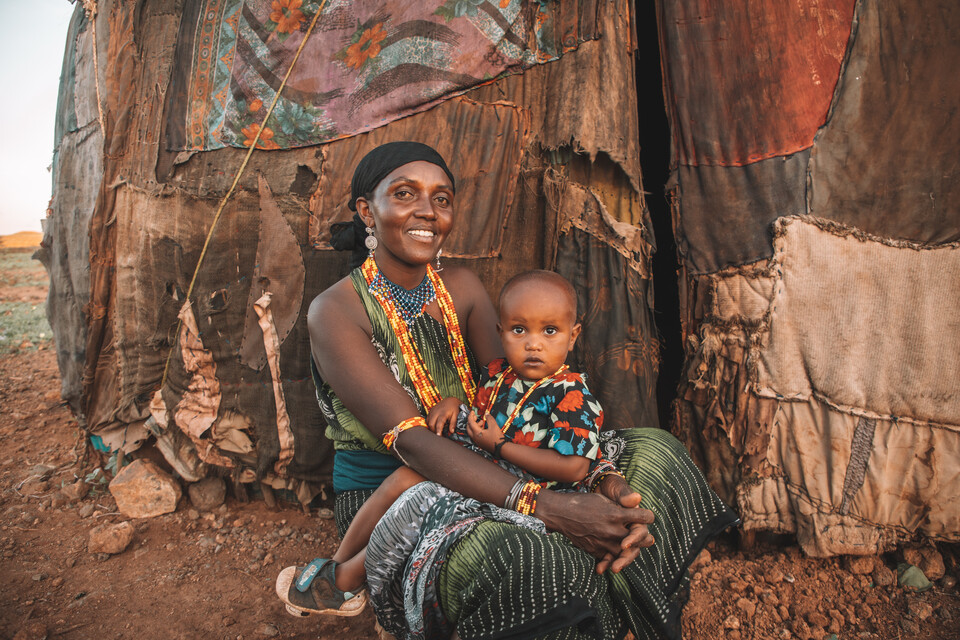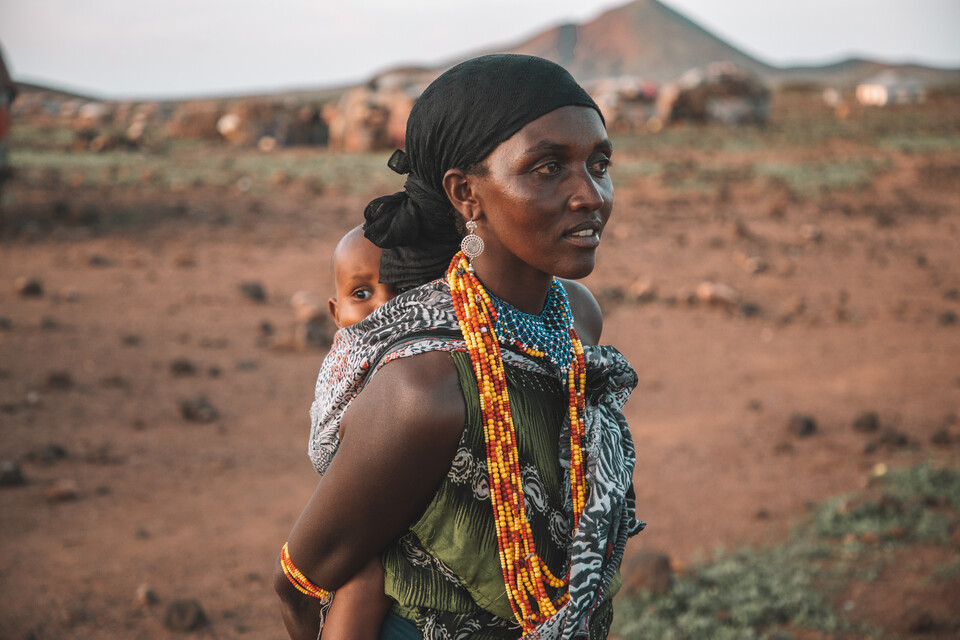When the Harvest Fails Again and Again
The climate crisis and its devastating impact are major contributors to global hunger. Droughts, storms, and floods are more frequently destroying crops worldwide, especially in the Global South, where the poorest populations live. The tragic result: hunger.
As Caritas, we consider it our responsibility to combat hunger worldwide. We tirelessly develop projects that assist people in adapting to ever-changing climatic conditions, thus securing their livelihoods. The situation is dire, but not hopeless. In our projects, we observe: There are ways to protect people from hunger.
Climate Crisis Leading to Famine
In acute emergency situations, we deliver essential supplies such as food and drinking water. Moreover, we focus on longer-term solutions. In Kenya, for instance, we support small-scale farmers in safeguarding their harvests against changing weather conditions. This includes promoting resilient seeds and increasing compost utilization.
The impact of the climate crisis is particularly severe for women, children, and the elderly. We provide daily warm meals to malnourished infants at baby feeding centers and to older children in schools. Through women's group projects, we empower women to generate income by selling their own products, enabling them to sustain their families.
We continue working daily towards a future without hunger.


Day and Night, Wato Struggles with Thirst. Caritas Steps In!
Wato lives in an area called Marsabit, currently enduring one of its worst droughts in 40 years. The climate crisis is causing significant weather fluctuations here in northern Kenya. Wato's village has completely run out of water, compelling her to trek 25 kilometers with her baby on her back to reach the nearest well for a few liters of water. Recently, Caritas began transporting water to Wato's village, bringing immense relief.
In the video, Wato talks about her tough circumstances.

Ihr Browser oder dessen Version ist veraltet und diese Seite damit nicht darstellbar. Bitte besuchen Sie unsere Seite mit einem aktuellerem Web-Browser. Auf der Webseite browsehappy.com finden Sie eine Auswahl an aktuellen Web-Browsern und jeweils einen Link zu der Herstellerseite.